Life

Educators and Parents, Sign Up for The Cheat Sheet
Weekly updates to help you use Science News Explores in the learning environment
Thank you for signing up!
There was a problem signing you up.
-
 Life
LifeCaught in the act
Scientists observe some evolutionary speed demons as they adapt over the course of just a few years to new environmental conditions.
-
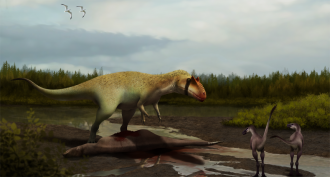 Fossils
FossilsEarly tyrannosaurs would have feared this predator
A newfound dinosaur fossil appears to explain why ancestors of T. rex didn’t begin their growth in size — and dominance — any earlier than they did.
By Sid Perkins -
 Brain
BrainInheriting fear
Scared of something and don’t know why? Maybe your parents or grandparents passed along their fear to you, a new mouse study suggests.
-
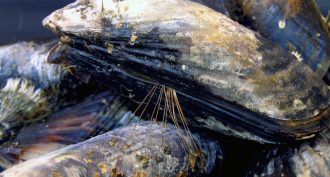 Animals
AnimalsMimicking mussels’ muscle
People who seek to get a grip on something — especially in wet environments — might want to take a lesson from some common shellfish. Among those who might benefit most: surgeons.
By Sid Perkins -
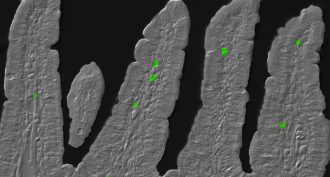 Health & Medicine
Health & MedicineNew problem linked to ‘jet lag’
The body’s internal clock can be thrown off when people alter their day and night routines. That mix-up may lead to a buildup of immune cells that can cause inflammation, according to a new study on mice.
-
 Animals
AnimalsKoalas’ very deep voice
Serenading males can sing some surprisingly low notes, and scientists have just uncovered how they do it.
By Beth Mole -
 Plants
PlantsGold can grow on trees
Australian researchers found leafy nano-evidence pointing to rich deposits of the precious metal deep below ground.
By Beth Geiger -
 Health & Medicine
Health & MedicineHIV: Reversing a death sentence
New research suggests the infection, while serious, can be treated — and maybe cured.
By Bryn Nelson -
 Brain
BrainSeeing without light
Many people report seeing their own hands moving in the dark, a new study finds. In these people, brain areas responsible for motion appear to fool vision centers into seeing what they would have — if there had been enough light to do so.
-
 Brain
BrainFear prompts teens to act impulsively
A new study finds that teens may act impulsively in the face of fear. This might help explain high rates of violence among such adolescents, the authors say.
-
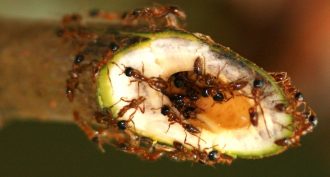 Animals
AnimalsAnts on guard
Tiny insects can take on big critters — from fly larvae to giraffes — in defense of their home, sweet home. And that home pays them back for this help.
By Roberta Kwok -
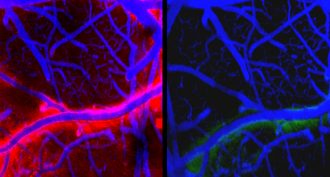 Brain
BrainSleeping brains take a bath
During waking hours, litter builds up in the spaces between brain cells. A new study shows that during sleep, fluid from the brain and spinal cord takes out this trash.